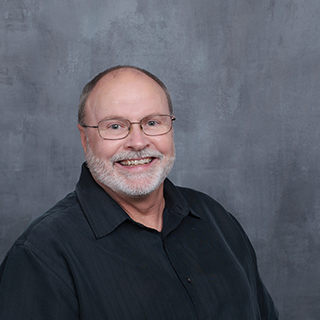Life Coach or counselor—which is the best option?
If you are confused about the differences between coaching and counseling, you are not alone. They overlap each other and share many similarities. And not all coaching and counseling sessions are conducted exclusively as coaching or counseling.
For instance, many counselors utilize coaching techniques while counseling their clients. This can be positive and productive. However, it can be dangerous for a coach to provide counseling when not properly trained as a counselor.
Too often, clients go to coaches looking to move forward in their career or achieve goals, but in the process, deeper issues from the past become uncovered. The appropriate move would be for the coach to refer the client to a counselor to resolve those issues. Sadly, many coaches ignore that important step.
When you choose someone like Dr. Lonnie Bryant, who is trained and educated to provide counseling and coaching, you don’t have to worry or wonder if you’ve chosen the correct discipline. Dr. Bryant received his doctorate in counseling and has over 25 years of experience. He also completed extensive training and is certified in coaching. His knowledge, expertise, and experience allow him to move fluidly from one discipline to the other as needed.
Do you need a coach or a therapist?
Let’s consider an analogy. Let’s say you want to get your body “in shape.” That means different things to different people.
Someone who is already healthy and athletic but dreams of completing an iron man triathlon could hire a personal trainer. A “coach” who pushes them to do more, helps them strategize and set goals, and gives them a workout routine could be the motivation and inspiration needed to achieve the dream.
But what about the person who recently had a heart attack or stroke or suffers from asthma or diabetes? It wouldn’t be a good idea for a personal trainer to push an unhealthy person to keep running or pumping weights.
This type of person needs a doctor’s direction and physical therapy. The fact is, while exercise and therapy can help get them back to a normal level of health, they should do so with caution and guidance.
While not everyone is on such broad ends of a spectrum, it can be helpful to consider the above. If you need more than goal setting with inspiration and motivation, you may need more than a coach.
What are the similarities between coaching and counseling?
Before we get into the differences, let’s first recognize the things coaching and counseling have in common.
Both coaching and counseling share the following:
- Assist with Setting and Achieving Goals
- Support Wellness
- Encourage growth
- Motivate Positive Change
- Provide a Safe, Supportive, Nonjudgmental Environment
- Help Identify and Rectify Things Holding You Back
- Excellent Listening (and Hearing) Skills
- Ask Great Questions
- Guidance in Finding the Right Answers for You
- Aim for an Improved, Satisfying, Happy Future
- Assist with Moving Forward in Career, Relationships, and Home Life
- Reinforce Changes in Your Perspective
- Help You Reach Your Potential
- Encourage Self-Discovery
As you can see, they both share many similarities. However, the differences are vital in determining which is best for you.
The Differences Between Coaching and Counseling.
Counseling looks to uncover and recover. The focus is on things that have happened in the past or are happening now that keep you from living life at a normal level. Counselors identify your problems and help find solutions to solve those problems. They help you move from dysfunction to a functioning level.
Coaching, on the other hand, involves discovery. It is about assisting someone who strives to achieve a higher level of function. The process involves an understanding of your “today” while discovering where you want to be. A coach will help you find ways to move forward and attain goals so you can live life at your fullest potential.
Coaches challenge you. They assist you with figuring out what success means to you and help you set and achieve goals to maximize your potential. You can expect support, encouragement, and structure to improve you personally, professionally, or both.
A life coach asks, “How should you change?”
On the other hand, a counselor is problem-focused. The question becomes, “Why should you change?” The process involves exploring the subconscious to understand patterns and behaviors.
When in counseling, you deal with emotions and feelings as you strive to find healing and resolution of pain and difficulties.
Counselors analyze the past to understand the present.
A coach focuses on actions and results and helps identify current problematic behaviors to modify them so you can achieve higher levels of life satisfaction and fulfillment.
Coaches analyze the present with a focus on the future.
The Difference in Progressing Toward Goals
The counseling process tends to be more painful as you deal with past hurts, disappointments, and issues.
With coaching, the process is positive and enjoyable as you begin to realize where you can go in your future. It is for ambitious achievers ready to meet and overcome present obstacles to attain maximum fulfillment and success.
Some other differences between counseling and coaching include:
- Counseling focuses on coping, whereas coaching focuses on action.
- Counselors want you to understand feelings, while coaches help you to recognize your thinking.
- A counselor offers support, understanding, and empathy, while coaches challenge you.
- Counseling assists you in being at peace with who you are, but coaches search for your potential.
How do you know which is right—counseling or coaching?
Before answering this question, I will start by saying you want to be sure you are trusting the right counselor or coach.
There are many “coaches” out there with little or no training.
Did you know there are no set standards for calling oneself a life coach? Many individuals unknowingly put their trust in someone who has no real training as a coach. Or someone who completed a two-day online course.
The really scary thing is that some “coaches” overstep the boundaries and actually try to provide “counseling” they are not equipped or trained to do.
Do NOT allow a coach to provide you counseling UNLESS THE COACH IS ALSO A PROPERLY EDUCATED AND TRAINED COUNSELOR. Some properly trained and educated counselors can provide coaching, but not the other way around.
You want to be sure you put your trust in someone with the proper experience, education, and knowledge.
You can trust Dr. Bryant.
Dr. Bryant received his PhD in counseling. He has over 25 years of experience in assisting thousands of couples, individuals, and families in achieving new levels of happiness and fulfillment. In addition, he is a certified life coach.
If you struggle with emotional or psychological issues, such as anger, depression, anxiety, abuse, grief, personality disorders, addiction, struggles with aging, parenting problems, blended family issues, or marital or family dysfunction, you need counseling, not coaching. The exception is if you have succeeded in counseling and have those issues well managed.
When trying to discern which path to take, consider the following:
Do you have patterns of feelings, actions, or thinking that interfere with who you want to be? If so, you need a counselor’s assistance. For those who desire a boost in self-esteem or yearn to be understood, counseling is the best choice.
Prefer not to get too personal? Looking for assistance with choices, decisions, and goal setting? Interested in guidance and motivation to help you achieve your goals and dreams? Then a life coach is what you need.
Start enjoying a better life today.
Whether you are looking for a counselor or life coach—or both—you can have confidence in Dr. Bryant’s education, experience, and proven track record. He can assist you over the phone, via video, or in person at any of his three locations in Flower Mound or north or south Fort Worth.
Find out if you and Dr. Bryant have what it takes to get you to where you want to be.
Call (682) 365-2099 today to schedule a FREE 20-minute consultation phone call with him.
Here’s to beginning the path toward a better you!


